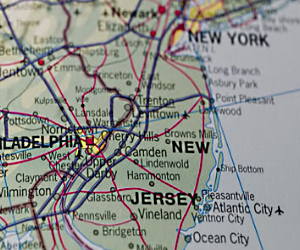Why New Jersey Should Be Pennsylvania’s iGaming Role Model
 Pennsylvania is moving steadily forward in its roadmap to enact online gaming. Now that the PA Gaming Control Board has made applications for interactive gaming suppliers available on its website, it is only a matter of time until gamers can participate.
Pennsylvania is moving steadily forward in its roadmap to enact online gaming. Now that the PA Gaming Control Board has made applications for interactive gaming suppliers available on its website, it is only a matter of time until gamers can participate.
But, as we highlighted in a previous article, there’s still a lot to work out. The most pressing question continues to be whether the Board will permit operators to offer multiple “skins” (customer-facing branded websites) or if it will limit each operator to just one.
However, we know for a fact that allowing operators to offer multiple skins fosters innovation and encourages growth in the iGaming market. Why? Because New Jersey is already allowing it.
In New Jersey, each operator is restricted to five distinct online gaming brands, but it has no limit on skins. That means operators can experiment with various user experiences and presentation models to the end of creating a better product for consumers.
The result is an iGaming market full of competition and innovation, and plenty of happy customers. Thanks to this thriving environment, New Jersey casinos bring in excess of $20 million in revenue every month.
It goes without saying that New Jersey’s experiences with iGaming could belong to Pennsylvania, too. But not if it chooses to limit skins. As we wrote in a letter to the Board, doing so could artificially cut the revenue that Pennsylvania could earn from smaller operators:
“Limiting skins would effectively pick winners and losers in the Pennsylvania market and hand the market to the state’s largest land-based casino operators (that are willing to enter the market). Because each license is extraordinarily expensive (up to $10 million plus taxes), smaller operators may only be able to afford interactive gaming operations if they subsidize some of the license expense and high tax rates through revenue sharing skin agreements.
“Even if they could justify the up-front licensing cost, smaller casinos will find themselves at a significant disadvantage when it comes to marketing budgets, which constitutes a much more significant cost for interactive gaming than it does for traditional, land-based casinos.”
The biggest casinos don’t need this much extra help, and handing the iGaming market to them would simply drive new players out. Instead, Pennsylvania should consider what is best for everyone in the iGaming market—big players, small players, and consumers, too.
The Pennsylvania Gaming Control Board is weighing its options carefully, but it’s important to remember that this isn’t a decision between two unknown entities. New Jersey is a real-life example of exactly how well a competitive iGaming market would play out.
